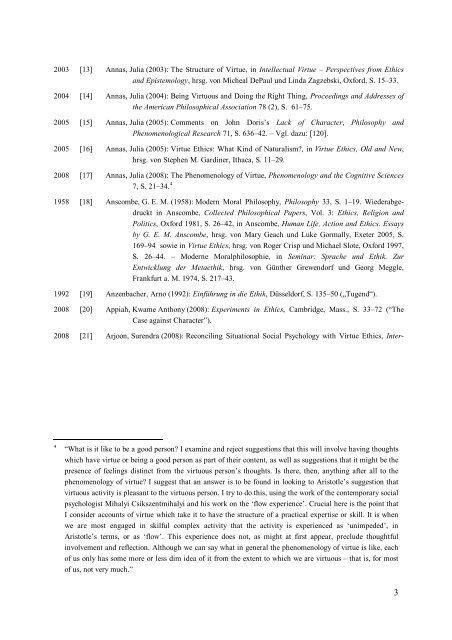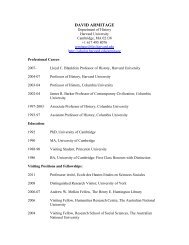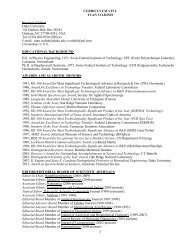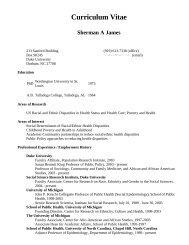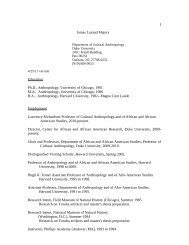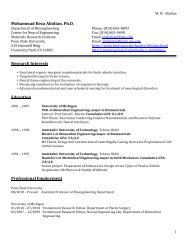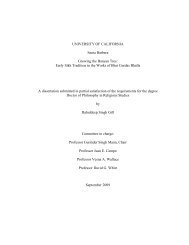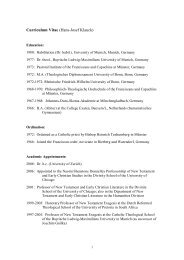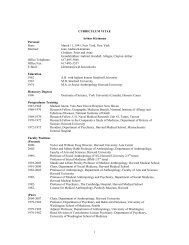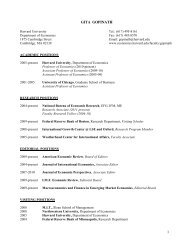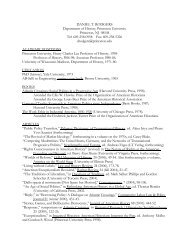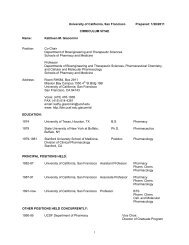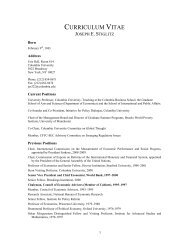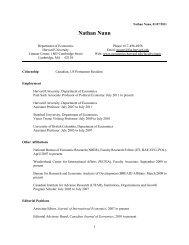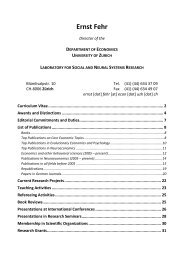Literatur zur Tugendethik Bibliography on Virtue ... - Academic Room
Literatur zur Tugendethik Bibliography on Virtue ... - Academic Room
Literatur zur Tugendethik Bibliography on Virtue ... - Academic Room
- No tags were found...
Create successful ePaper yourself
Turn your PDF publications into a flip-book with our unique Google optimized e-Paper software.
2003 [13] Annas, Julia (2003): The Structure of <strong>Virtue</strong>, in Intellectual <strong>Virtue</strong> – Perspectives from Ethicsand Epistemology, hrsg. v<strong>on</strong> Micheal DePaul und Linda Zagzebski, Oxford, S. 15–33.2004 [14] Annas, Julia (2004): Being Virtuous and Doing the Right Thing, Proceedings and Addresses ofthe American Philosophical Associati<strong>on</strong> 78 (2), S. 61–75.2005 [15] Annas, Julia (2005): Comments <strong>on</strong> John Doris’s Lack of Character, Philosophy andPhenomenological Research 71, S. 636–42. – Vgl. dazu: [120].2005 [16] Annas, Julia (2005): <strong>Virtue</strong> Ethics: What Kind of Naturalism?, in <strong>Virtue</strong> Ethics, Old and New,hrsg. v<strong>on</strong> Stephen M. Gardiner, Ithaca, S. 11–29.2008 [17] Annas, Julia (2008): The Phenomenology of <strong>Virtue</strong>, Phenomenology and the Cognitive Sciences7, S. 21–34. 41958 [18] Anscombe, G. E. M. (1958): Modern Moral Philosophy, Philosophy 33, S. 1–19. Wiederabgedrucktin Anscombe, Collected Philosophical Papers, Vol. 3: Ethics, Religi<strong>on</strong> andPolitics, Oxford 1981, S. 26–42, in Anscombe, Human Life, Acti<strong>on</strong> and Ethics. Essaysby G. E. M. Anscombe, hrsg. v<strong>on</strong> Mary Geach und Luke Gormally, Exeter 2005, S.169–94 sowie in <strong>Virtue</strong> Ethics, hrsg. v<strong>on</strong> Roger Crisp und Michael Slote, Oxford 1997,S. 26–44. – Moderne Moralphilosophie, in Seminar: Sprache und Ethik. ZurEntwicklung der Metaethik, hrsg. v<strong>on</strong> Günther Grewendorf und Georg Meggle,Frankfurt a. M. 1974, S. 217–43.1992 [19] Anzenbacher, Arno (1992): Einführung in die Ethik, Düsseldorf, S. 135–50 („Tugend“).2008 [20] Appiah, Kwame Anth<strong>on</strong>y (2008): Experiments in Ethics, Cambridge, Mass., S. 33–72 (“TheCase against Character”).2008 [21] Arjo<strong>on</strong>, Surendra (2008): Rec<strong>on</strong>ciling Situati<strong>on</strong>al Social Psychology with <strong>Virtue</strong> Ethics, Inter-4“What is it like to be a good pers<strong>on</strong>? I examine and reject suggesti<strong>on</strong>s that this will involve having thoughtswhich have virtue or being a good pers<strong>on</strong> as part of their c<strong>on</strong>tent, as well as suggesti<strong>on</strong>s that it might be thepresence of feelings distinct from the virtuous pers<strong>on</strong>’s thoughts. Is there, then, anything after all to thephenomenology of virtue? I suggest that an answer is to be found in looking to Aristotle’s suggesti<strong>on</strong> thatvirtuous activity is pleasant to the virtuous pers<strong>on</strong>. I try to do this, using the work of the c<strong>on</strong>temporary socialpsychologist Mihalyi Csikszentmihalyi and his work <strong>on</strong> the ‘flow experience’. Crucial here is the point thatI c<strong>on</strong>sider accounts of virtue which take it to have the structure of a practical expertise or skill. It is whenwe are most engaged in skilful complex activity that the activity is experienced as ‘unimpeded’, inAristotle’s terms, or as ‘flow’. This experience does not, as might at first appear, preclude thoughtfulinvolvement and reflecti<strong>on</strong>. Although we can say what in general the phenomenology of virtue is like, eachof us <strong>on</strong>ly has some more or less dim idea of it from the extent to which we are virtuous – that is, for mostof us, not very much.”3


